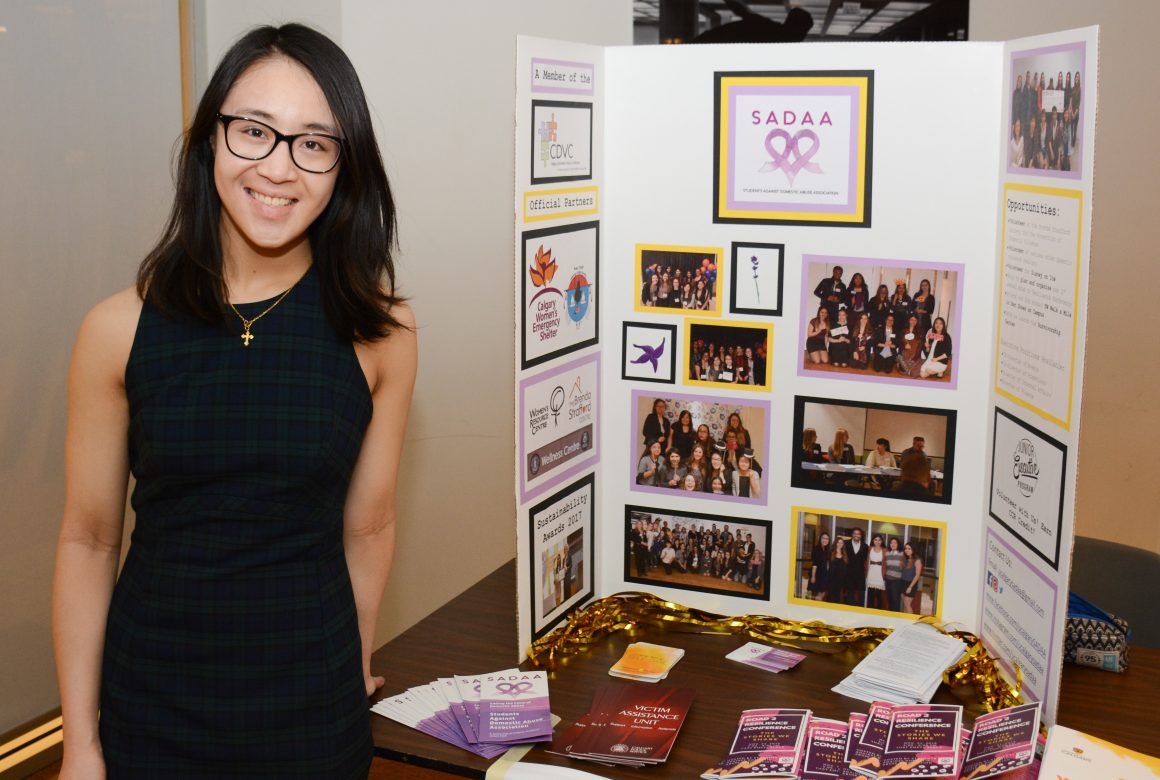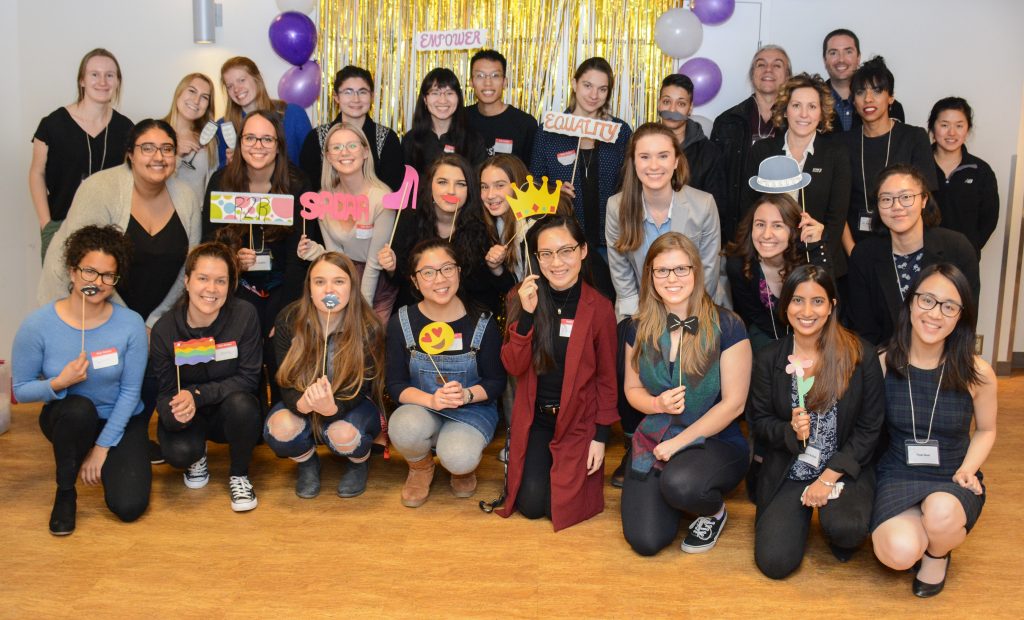
SADAA host third-annual Road 2 Resilience
By Justin Schellenberg, November 30 2018 —
The third-annual Students Against Domestic Abuse Association (SADAA) Road 2 Resilience Conference was held in That Empty Space on Nov. 21.
Tina Guo, a second-year medicine student and the SADAA co-executive director, hoped the event contributed to a campus-wide support network for those experiencing domestic abuse.
“The objective of this conference, like every conference before it, is really to raise awareness of the misconceptions and realities surrounding domestic abuse and to equip students with respectful but effective strategies to intervene when they suspect that others around them may be experiencing domestic abuse,” Guo said.
Guo added that the stigma surrounding domestic abuse has led to victims feeling too uncomfortable to talk openly about their experiences.
“As a result of that, a lot of people who have experienced domestic abuse face a lot of barriers in seeking and accessing help because they feel ashamed of their experiences,” she said. “What we’re really trying to do is combat and tackle that stigma so that we can create an inclusive on-campus environment where people feel it’s safe to discuss their experiences with domestic abuse and dating violence.”
The keynote speaker for the event was Carla Bertsch, the University of Calgary’s first Sexual Violence Support Advocate.
Bertsch talked about how the #MeToo movement has helped to shed light on the pervasiveness of abuse in today’s society, but acknowledged its shortcomings in dealing with the issue.
“[The movement has] drawn attention to how prevalent it is and what some of the consequences are, but it’s not doing anything to solve the problem,” Bertsch said. “For me the movements are just about the conversation, but then, what are we going to do with this? Now what?”
Bertsch said there is a need to get actively in the way of and disrupt the attitudes and beliefs that help perpetuate sexism, racism, misogyny and homophobia because they are systemic issues that underpin sexual violence.
“We all have to look at what part we play in it and how we can disrupt the messages that are upholding these instances of violence,” Bertsch said. “If somebody says a racist joke, a homophobic joke, do I listen, interrupt it, disrupt it, challenge it? I encourage people to see these things in their day-to-day lives and question, ‘Does it need to be there? Am I going to consume this? What can I do to step in here and say something different?’ I think this is how we are going to end these acts of violence.”
Among the group panelists for the event was Camila Gomez, a second-year development and women’s studies student. Gomez said the event was helpful in shedding a light on the realities of domestic abuse.
“We aren’t having these conversations enough,” Gomez said. “It’s important to have these kinds of events because domestic violence is still considered a taboo topic, but yet it happens to so many women and men and people of all sorts of gender identities, orientations, races, cultures and backgrounds.”
Gomez added that simply listening to victims’ stories can aid in their recovery.
“A lot of times what people need first and foremost is that listening, that compassion, that understanding and that validation that what they’re going through is real,” Gomez said.
Guo and the SADAA are also working on a project called The Survivorship Series, which will be a physical and digital story-sharing platform where survivors and experts can anonymously share their stories about domestic abuse.

“We really intend it to be a tool to affect change in the community by revealing that human element of domestic abuse and really allowing people to understand and resonate with the experience of survivors,” Guo said.
Guo believes the SADAA is making good progress in destigmatizing the issue of domestic violence with students, and that it is helping inform them of the resources and services that are available to them.
“We really hope to create an environment where survivors don’t have to feel ashamed,” Guo said. “Where they don’t have to feel embarrassed about their experiences with domestic abuse and where they feel empowered to share their experiences and ultimately build resilience so that they can excel in other domains of their life.”
To contact the SADAA, visit them on Facebook and Twitter. The U of C also has information on more on-campus events and support systems, as well as a discreet sexual violence support webpage.
